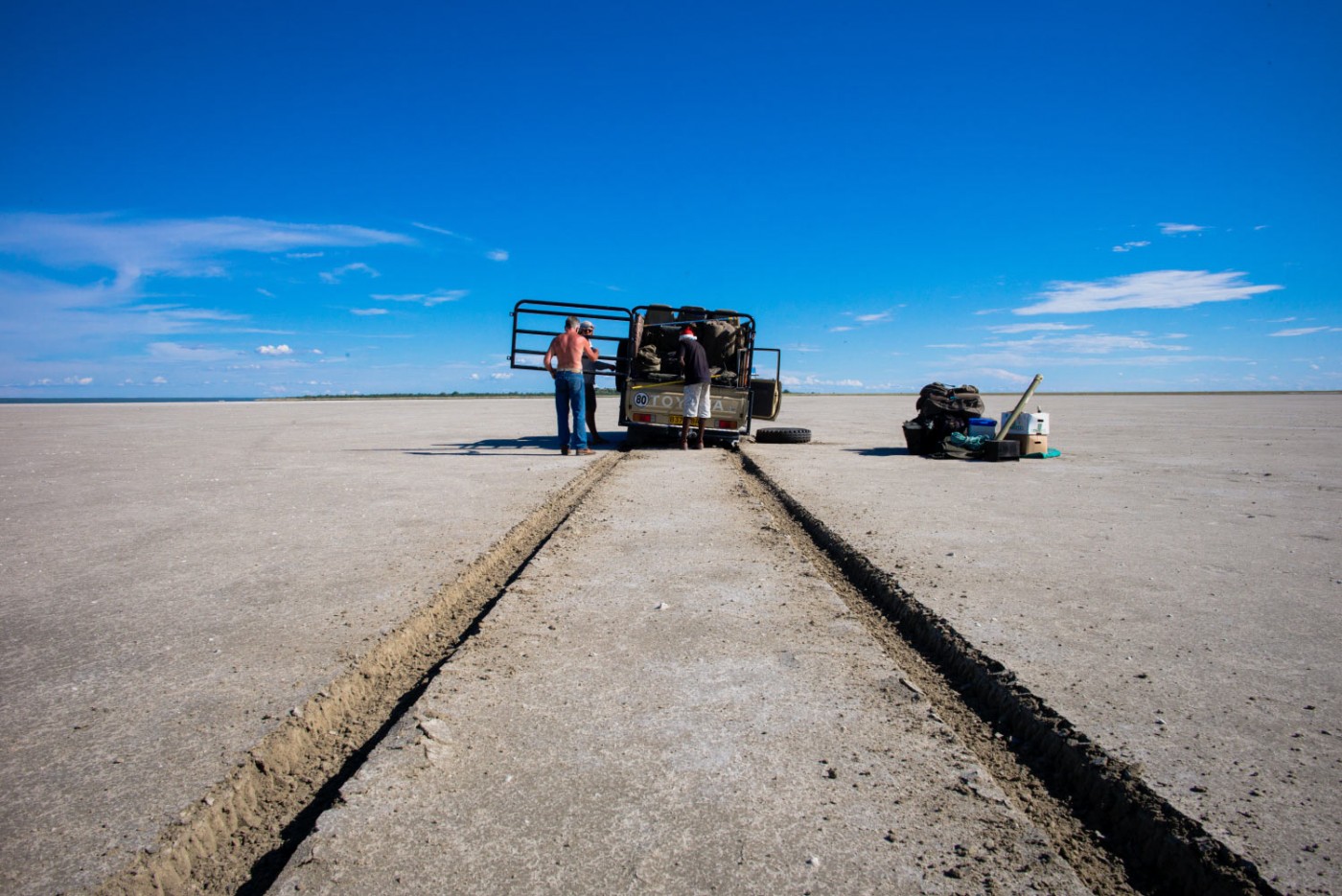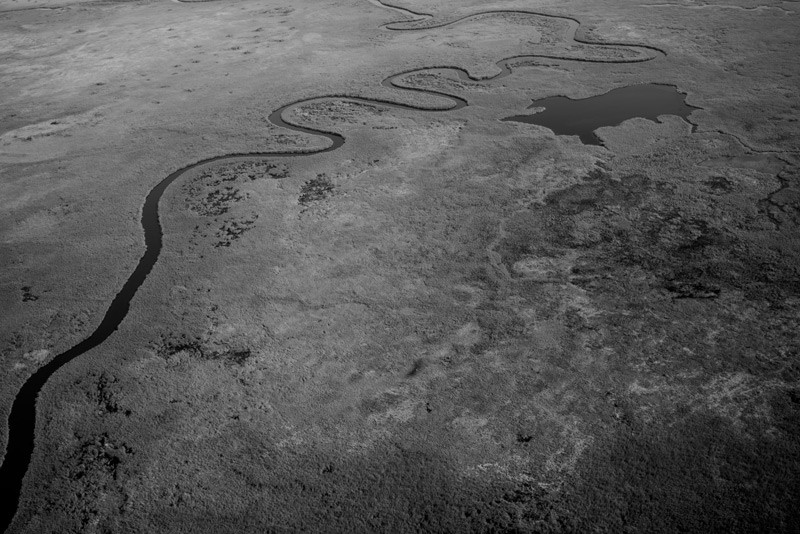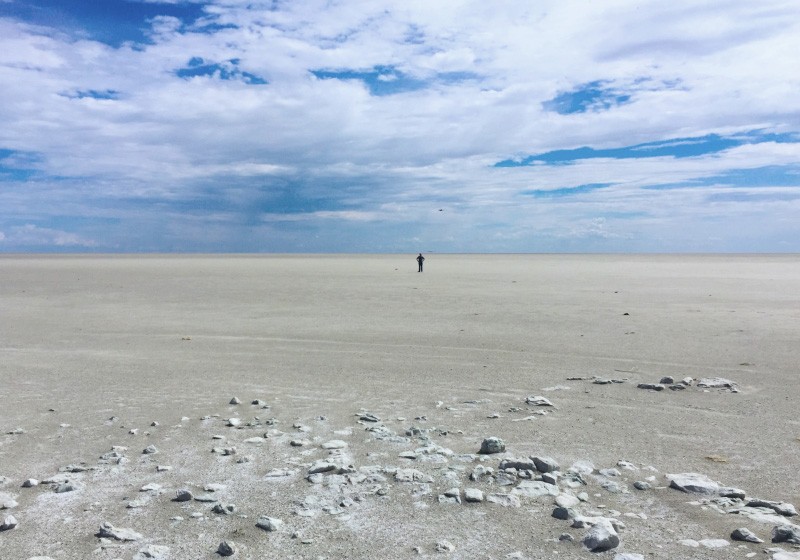Going Off the Grid: Alwyn Chong’s African Adventure
It’s funny how we always feel that the world will fall apart when we are not around.
With the rise of modern technology, you would be hard pressed not to find free Wi-Fi in a hotel or mobile coverage in the middle of the lake during your exotic getaway. The increased connectivity all over the world makes it easy to check your work emails on the go, or to send a quick selfie to your family and friends. These distractions make it difficult for one to enjoy their well-deserved holiday when focus is always on work and life back home. This has prompted many travellers to go off the grid, disconnecting completely in order to reconnect with their surroundings. One such traveller is Alwyn Chong.
Alwyn’s love affair with Africa began in 2008, when he embarked on a safari trip for the first time. Although he runs a very tight schedule, managing Luxasia, Escentials and Gallery & C0., he likes to dedicate his attention wholly to the country, and immerse himself in the sights and experiences of nature and wildlife.
In June, Alwyn is planning to circumnavigate the Makgadikgadi Pans on a quad bike. The vast expanse of nothingness and silence that fills the air creates an unforgettable and breathtaking view of the pans that is just overwhelming. “Space and Time have different dimensions here—it is just about being, in a place of nothingness,” Alwyn explains. “Instead of people watching or listening to the chirping of birds, croaking of frogs or rustling of leaves, our focus is on the screen. A lot of times, I find myself travelling from the airport to the city without even knowing what I passed on my way in, or what the city looks like because I was too busy replying emails on my mobile.”
Q: When was the first time you travelled to a particular place and fully disconnected from all your electronic devices?
A: I completely disconnected for the first time back in 2008. It was my first trip to Botswana, Africa, and my first safari. My family and I were supposed to attend the YPO South African Safari experience, but my sister and I also signed up for an off-site there, a few days prior. It was then that I met Roger Dugmore, a guide who has become a good friend, travel buddy and my African brother. It is a funny feeling to simply toss your mobile phone aside, and consign yourself to the present. Life was different before our use of mobile phones, and so were our habits. Conversations were only held face-to-face or over a land line. We cancelled less appointments and remembered a whole list of phone numbers. Most importantly, we were always more present with the company we were with.
Q: How long did you stay “off the grid”?
A: 5 days.
Q: What made you take the conscious step to do so?
A: It wasn’t a conscious decision to disconnect. There wasn’t any cellular coverage at the safari, so I couldn’t use my mobile phone at all. The feeling of being “off the grid” was something I had forgotten about for a long time, and that reopened a whole ‘new’ perspective on life, for me.
Q: How was the experience like mentally, physically, emotionally?
There was focus—I felt present and more alive. I noticed things, sounds, people more acutely, and in some way—I became free and untethered. I found myself wanting to engage with others more than what I would usually do.
Q: Did you learn anything surprising about yourself during that experience?
A: I learned that I am not as important as I thought. I realised that if you plan things properly and make it a choice, you can make anything happen. Silence can also be powerful when you quiet your soul and clear your mind of distractions. There is something primal about it. Life is beautiful, yet there is always an element of danger when you’re in the wild. Having that experience taught me to reflect on what is important, and to recentre and recalibrate myself.
Q: Was it hard for you? There is always the urge to check your emails or to be on social media.
A: Yeah, it was difficult on the first day. In the real world, when you have a moment, you check your phone instinctively. But after a while, when you start to adjust, it isn’t that hard to let go.
Q: Would you recommend others to go “off the grid”?
A: It’s hard to explain to others because they cannot fathom how it truly feels. They will only realise the true benefits when they experience it for themselves. People don’t typically do it because of time constraints. But if you can afford it, I would recommend going off the grid at least once a year. Personally, I prefer to have two long breaks spanning two weeks at a go than ten short weekend getaways. The longer break gives me enough time to wind down from everyday concerns and issues at work, and to fully relax. I am recharged and raring to go by the time I get back to work. It’s funny how we always feel that the world will fall apart when we are not around.
Q: Where are you planning to go to next?
A: I am planning to circumnavigate the Makgadikgadi Salt Pans on quad bikes in June. This is an 18-day expedition in Botswana that’s never been done before.
Q: What preparations do you have to make for such a trip?
A: I did a recce for this upcoming expedition, last December. It was a 5-day trip that involved us driving a Toyota Land Cruiser around the pan to find potential re-fuelling points for the expedition, since the pans are vast—about the size of Switzerland. That in itself was an experience.
I landed in Maun the evening before, to meet with Roger and the rest of the crew at the River Lodge. It is the local watering hole serving what is probably the best steak in Maun. Everyone was telling us that we were out of our minds to try and do this expedition, and crazier still for conducting our recce in the wet season. “Two shovels and a spare jack!” they told us, repeatedly.
We set off the next morning for Nata, a 3-hour drive away and our last stop before heading into the wilderness. There were dark clouds in the distance to our left and right, and government announcements for heavy storms expected over the next few days.
After finding our way past Sowa town, we arrived at a small family-owned farm. They shared with us the lay of the land, and also about how the government wanted to relocate them to the city, for better access to education and medicine. But they told us, “We don’t want to move. This is where our forefathers lived, worked and are buried, “This is where we want to stay.” I’ve made a note to print and give them the photographs I took of them, the next time we meet.
Shortly after, we finally caught a glimpse of the pans. It was breathtaking. It seemed as if we were approaching an ‘ocean’ of white sand. The sun was setting, and the colours in the clouds and the reflection on the water was magnificent. We set up camp, put our field chairs out and just enjoyed looking out onto the horizon. That evening a dust storm hit, the first I ever experienced. The rain finally descended upon us, and the next three days, the storm continued to beat down on us. We never managed to complete our recce, because we encountered a river that we couldn’t cross—we were surrounded by water and soft ground due to the constant downpour–and almost came to the point where we had to leave the vehicle and call for a heli-evacuation. I’ll save the rest of the story for my second expedition book that will be out next year.




